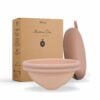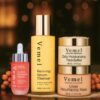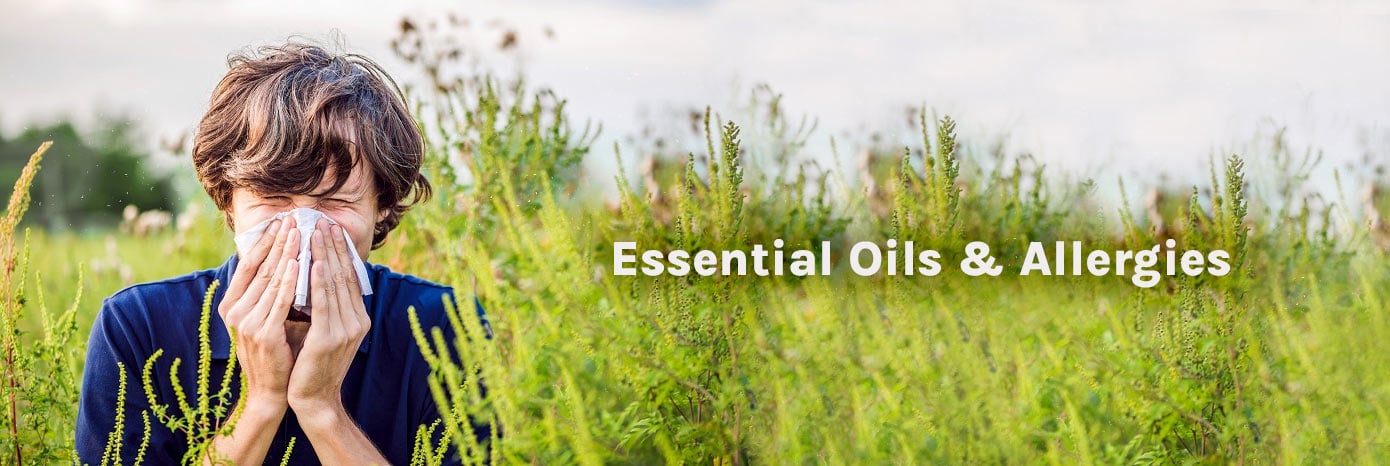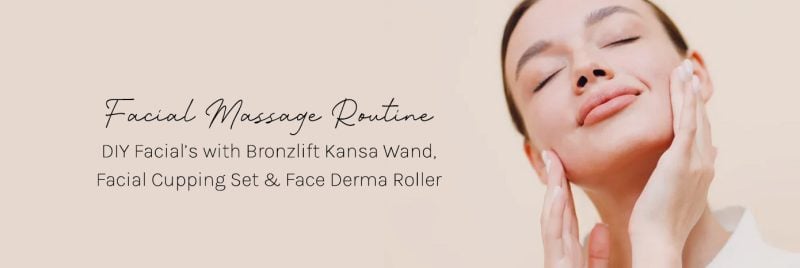Beauty News, Nadine Artemis (Living Libations), Wilma
Essential Oils and Allergies
Allergies can strike at various times of the year, from the tail end of winter and the onset of spring, to the late summer months and autumn. Sometimes these allergies are intermittent, triggered when a specific plant to which you’re allergic begins to bloom. Other times, they may persist continuously throughout certain seasonal periods.
Essential oils present a viable alternative or supplementary remedy for alleviating allergy symptoms. Extracted from plants, these oils offer a multitude of uses. Some of the prevalent methods of utilizing essential oils include:
- dispersing them into the atmosphere
- incorporating them into bath and spa items
- applying them on the skin in a diluted form
- misting them in the surroundings
- inhaling them directly from their containers
Inhalation of these aromatic oils, a practice known as aromatherapy, activates your body via your olfactory senses. The odors you perceive can exert influence on various other parts of your body.
Similarly, when essential oils are applied to your body, they are absorbed into your bloodstream. It’s crucial to dilute these oils before topical applicatoin to avoid adverse reactions.
You can use a carrier oil, like sweet almond oil or olive oil, to dilute the essential oils effectively. A typical blend would consist of approximately 5 drops of an essential oil mixed with 1 ounce of a carrier oil.
Although the body of research supporting the efficacy of essential oils is not extensive, new studies are continually emerging. With cautious application, you may find that aromatherapy with essential oils provides beneficial effects.
If you’re considering incorporating essential oils into your regimen for allergy relief, there are a few options you might want to explore.
- Lavender
Known for its myriad of benefits, lavender is a widely loved essential oil. Its calming and anti-inflammatory properties may help alleviate symptoms during the allergy season. Research has shown that lavender essential oil can prevent allergic inflammation and inhibit the enlargement of mucous cells. For usage, consider diffusing lavender for aromatherapy or diluting it in a carrier oil for a soothing bath. - Sandalwood, Frankincense, and Ravensara Oil Blend
A study has shown beneficial effects of a blend of sandalwood, frankincense, and Ravensara oils in treating perennial allergic rhinitis. Participants reported improvements in their blocked nasal passages, and lessened runny and itchy noses, and sneezing. It appears this blend can aid with perceived symptoms, enhance quality of life associated with allergies, and promote better sleep. To utilize these blended oils, mix with a carrier oil like sweet almond oil and apply to the skin or diffuse into the air. - Eucalyptus
Eucalyptus oil, recognized for its anti-inflammatory properties, may assist in relieving congestion. The refreshing sensation experienced while inhaling it could provide relief from seasonal allergy symptoms. Current research suggests that eucalyptus aromatherapy might decrease inflammation, potentially reducing allergic symptoms. Consider diffusing eucalyptus into the air or inhaling directly from the bottle for comfort. However, be cautious as eucalyptus, despite its anti-inflammatory properties, can also provoke allergies in some individuals. - Tea Tree Oil
While more research is required to solidify the link between essential oils and allergy relief, tea tree oil is worth considering. Known as an anti-inflammatory, it might help alleviate allergy symptoms. However, be aware that tea tree oils can also induce allergies. It’s recommended to perform a skin patch test before using it. Also, it’s important to note that tea tree oil is toxic if ingested, so refrain from consuming any essential oil. - Peppermint
Peppermint essential oil is recognized for its anti-inflammatory properties. It can facilitate easier breathing when diffused or applied to the skin after dilution with a carrier oil. A blend of peppermint, lavender, and lemon oils can also serve as a potent and soothing allergy relief. However, be cautious as combined oils might heighten the risk of an allergic reaction. Also, exposure to sun can become more sensitive with the application of citrus oils. - Lemon
Citrus-infused essential oils, like lemon, are frequently used in aromatherapy to enhance alertness and invigorate the senses. Additionally, lemon essential oil can aid in clearing sinuses and relieving congestion, common seasonal allergy symptoms. If you use lemon or other citrus-scented oils, avoid exposing your skin to sunlight or tanning beds. Consider diffusing the oil for mood elevation or applying it in diluted form to your skin to combat allergy symptoms.
Potential Risks and Complications of Essential Oils Use
Essential oils use is not without potential risks. The purity, quality, and packaging of these oils are not regulated by the U.S. Food and Drug Administration, hence it’s crucial to use them as advised and ensure the products are of good quality.
For individuals with multiple allergies or those who are especially sensitive to chemicals, essential oils may provoke additional allergic reactions. It’s advisable to consult your doctor before initiating any essential oil treatments.
Remember the following guidelines when using essential oils:
- You may experience allergic reactions to oils, so make sure you cautiously use them for the first time. Test the essential oil mixed in carrier oil on unbroken skin, such as your forearm. If you don’t have a reaction in 24 hours, it should be safe to use. Test each new essential oil, especially if you have allergies.
- Never apply concentrated oil directly to your skin. Dilute it in a carrier oil before applying it.
- Don’t ingest essential oils.
- Use caution when using oils around pregnant and breastfeeding women and children, especially young children.
SOURCES
- Aromatherapy and essential oils. (2017).
ncbi.nlm.nih.gov/pubmedhealth/PMH0032518/ - Bauer BA. (2017). Consumer health: What are the benefits of aromatherapy?
mayoclinic.org/healthy-lifestyle/consumer-health/expert-answers/aromatherapy/faq-20058566 - Carson CF, et al. (2006). Melaleuca alternifolia (tea tree) oil: A review of antimicrobial and other medicinal properties. DOI:
10.1128/CMR.19.1.50-62.2006 - Choi SY, et al. (2016). Effect of inhalation of aromatherapy oil on patients with perennial allergic rhinitis: A randomized controlled trial. DOI:
10.1155/2016/7896081 - Common seasonal allergy triggers. (2017).
acaai.org/allergies/seasonal-allergies - Herro E, et al. (2010). Mentha piperita (peppermint).
ncbi.nlm.nih.gov/pubmed/21144345 - How aromatherapy can help ease your pain. (2016).
health.clevelandclinic.org/aromatherapy-can-help-ease-joint-pain/ - Kartal D, et al. (2016). Allergic contact dermatitis caused by both eucalyptus oil and spruce oil.
journalijmpcr.com/index.php/IJMPCR/article/view/21264 - Silva J, et al. (2003). Analgesic and anti-inflammatory effects of essential oils of eucalyptus. DOI:
10.1016/j.jep.2003.09.007 - Stressed out? Aromatherapy can help you to feel calmer. (2015).
health.clevelandclinic.org/stressed-out-aromatherapy-can-help-you-to-feel-calmer/ - Ueno-lio T, et al. (2014). Lavender essential oil inhalation suppresses allergic airway inflammation and mucous cell hyperplasia in a murine model of asthma. DOI:
10.1016/j.lfs.2014.05.018








































 Beauty Products
Beauty Products By Skintype
By Skintype Brands A-Z
Brands A-Z Wellness
Wellness Health / Nutrition
Health / Nutrition